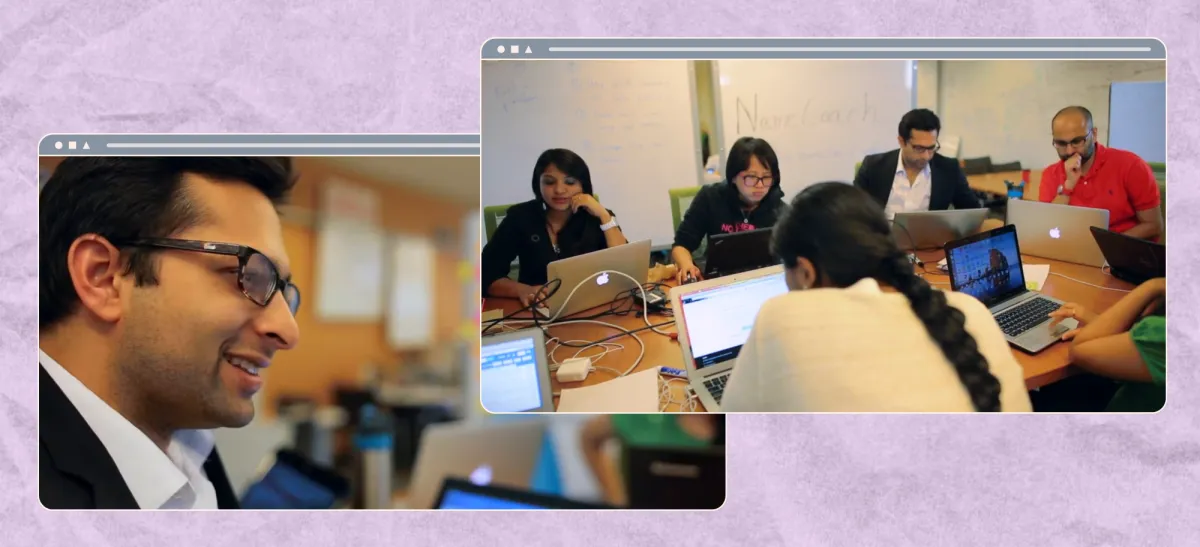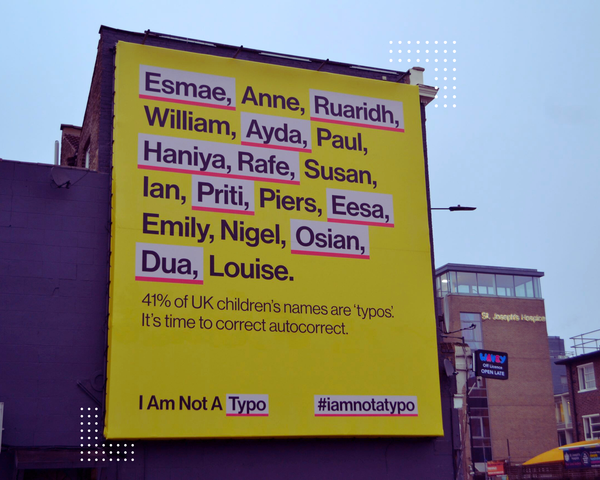“Pronouncing someone’s name correctly is the first step in showing that you respect them”: An Interview with Dr. Praveen Shanbhag, Founder and CEO of Namecoach
Meet the AI-powered company on a mission to solve the common problem of name mispronunciation and gender pronoun communication in the workplace and beyond.

Access the Audio Read version of this article directly on Spotify for Podcasters.
“With Namecoach, we aim to eliminate these barriers that might keep someone from certain opportunities because of their background.”
Sponsored by Namecoach
In a 2021 study by Namecoach, 44% of respondents revealed they had their names mispronounced in an interview, and 41% had their names mispronounced in a customer meeting. "In spite of all the investment in diversity and inclusion, in subtle but impactful ways, we can still make people feel like an 'other’," said Namecoach Founder and CEO Dr. Praveen Shanbhag at the time.
After hearing his sister’s name mispronounced at her college graduation, Dr. Praveen Shanbhag felt compelled to develop Namecoach, an AI-powered company on a mission to solve the common problem of name mispronunciation and gender pronoun communication in the workplace and beyond, while finishing his Ph.D. at Stanford. The result is a simple yet effective solution that integrates audio name pronunciations with online tools to easily learn how to say them - perfectly.
In that same 2021 study, 22% of respondents admitted they didn't introduce someone because they didn't know how to say their name. 16% said they didn't talk to a coworker out of fear of not knowing how to say their name, and 13% didn't call on someone in a meeting because they didn't know how to pronounce their name.
The work of organisations like Namecoach gives people unfamiliar with the pronunciation of non-Western names, the confidence to pronounce them right, and that's something we're completely behind. We spoke to Dr. Praveen Shanbhag to find out more about his journey, the story behind Namecoach, and their work in helping marginalised folks celebrate their names and heritage.
1. What is Namecoach's purpose and mission? What problems does it help solve?
Namecoach aims to solve the common problem of name mispronunciation in as many critical settings as possible.
Our name pronunciation solution helps corporate and educational leaders foster diversity, equity and inclusion in their organisation. Whether it be corporate organisations or educational institutions, proper name pronunciation helps foster a sense of community, build stronger relationships, and create lasting impressions. One of the areas we see the biggest impact, and what inspired me to start Namecoach, is commencement. Studies have shown that the most important thing at a graduation ceremony is getting someone’s name right, yet it remains a common problem among institutions and commencement speakers. Using Namecoach enables commencement speakers to learn and practise students’ names ahead of time.
2. How did your own experience, as an individual with a non-western name, help influence and shape Namecoach?
While attending my sister’s graduation, her name was mispronounced which was a really alienating experience for her and my entire family. After recognizing the very real and common problem of name mispronunciation, I was inspired to create Namecoach.
When I was developing Namecoach, my mom told me about an experience she had at a doctor’s office where they told her they could not pronounce her name so they would call her Anna. In this situation, you feel like your identity is being disregarded, and every time my mom went to the doctor, she felt like someone else was being treated.
3. D&I is a core component of your business, how do you navigate this space and ensure your work has an impact on marginalised communities?
Pronouncing someone’s name correctly is the first step in showing that you respect and appreciate them. By developing a solution that helps individuals learn each other’s names, we’re helping to create a sense of community and belonging for everyone, regardless of cultural background.
Namecoach is 98.7% accurate by using different demographic factors, like nationality, ethnicity, gender, and location, to determine a pronunciation. A general search for the pronunciation of someone’s name does not take all of these factors into account, so really there are a lot of people, cultures, and nationalities that are excluded.
Everyone has a name, but names that are more difficult to pronounce can create a barrier for the individual. It has been proven that people won’t call on someone or introduce them if they have a difficult time pronouncing their name, which is isolating and can have a negative impact on someone’s self image. Additionally, by abbreviating your name to make it easier to pronounce, it can feel as though you are abbreviating your identity. With Namecoach, we aim to eliminate these barriers that might keep someone from certain opportunities because of their background.
4. Let's talk about AI and the current discourse around it. Can it be a force for good?
There are situations where AI is a force for good. A lot of the work we do at Namecoach is research-backed and user-recording generated, but with AI we are actually able to expand our database and provide accurate pronunciations for even more names. There are over 30 million names in the world, 80% of which have multiple pronunciations. So with AI, we are able to provide recommendations of the most-likely pronunciation of a name based on a variety of demographic factors that we wouldn’t otherwise be able to predict.
5. How can AI specifically help people from marginalised communities?
With tools like Namecoach that aim to promote a sense of belonging, inclusivity, and build stronger relationships, AI can help people from marginalised communities by eliminating barriers they may have faced. In some cases, AI can bring people together by educating us on other cultures, nationalities, etc. that we don’t already know. By using AI tools to be respectful and accepting of others, you are enabling them to bring their authentic self to school or work, in an environment they may not have otherwise felt comfortable with. AI gives us an opportunity to understand each other more deeply, while helping others be more included in work and school conversations.
6. What does the future entail for Namecoach? What can we expect you to tackle next?
We are building a few different AI systems. For example, we are creating a system that not only tells someone how a name is pronounced but caters the pronunciation to that person’s native language, making it easier for them to say the name accurately.
We are also working on expanding into different systems, such as conferencing, healthcare, and HR platforms. This will help people across different industries create a culture of inclusivity in their organisation.
7. Anything else you would like to add?
Our names are central to our identities, and saying them correctly is the first step in connecting with, respecting and appreciating one another. Prioritising proper name pronunciation at your company or school will have lasting effects on your employees, students, and customers. I encourage others to be aware of their interactions and remember that assigning unwanted nicknames, abbreviating names, or asking “can I just call you…” can make them feel unvalued and isolated.
For more information about Namecoach, visit https://name-coach.com/.





